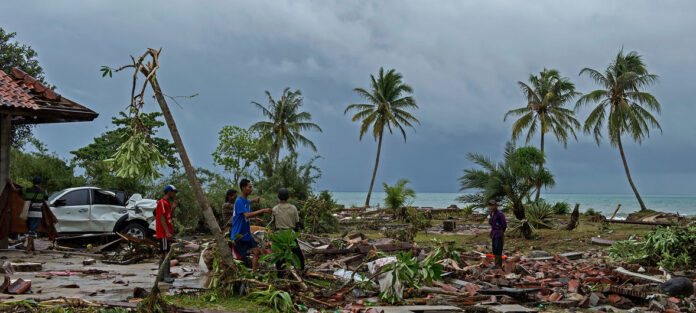The UN International Day for Disaster Reduction is celebrated annually on October 13. This day has been marked to commemorate the international tradition of disaster risk reduction. It celebrates disaster risk reduction efforts and seeks to promote a culture of climate friendly to reduce the likelihood of natural disasters. It also acknowledges the progress made in reducing risks and losses in health, human health, and health in line with the Sendai Disaster Risk Reduction Framework 2015-30, adopted at the third UN World Disaster Risk Reduction Conference in Japan in March 2015.
The UN Secretary-General, in 2016, launched the “Sendai Seven Campaign” to promote seven goals over seven years. The target for 2020 was Target E “which has significantly increased the number of countries with national and domestic risk reduction strategies by 2020”.

Important Announcement – EasyShiksha has now started Online Internship Program “Ab India Sikhega Ghar Se”

Q. Are EasyShiksha's internships truly free?
Yes, all internships offered by EasyShiksha are completely free of charge.
Q. How can I apply for an internship with EasyShiksha?
You can apply by visiting our website, browsing available internships, and following the application instructions provided.
Q. What types of internships are available through EasyShiksha?
EasyShiksha offers a wide range of internships across technology, business, marketing, healthcare, and more. Opportunities are continuously updated.
Q. Will I receive a certificate upon completing an internship?
Yes, upon successful completion, you will receive a certificate recognizing your participation and achievements.
Q. Are EasyShiksha's internship certificates recognized by universities and employers?
Yes, the certificates are recognized by universities, colleges, and employers worldwide.
Q. Is the download of certificates free or paid?
Access to internships and courses is free, but there is a small fee to download certificates, covering administrative costs.
Q. When can I start the course?
You can choose any course and start immediately without delay.
Q. What are the course and session timings?
These are fully online courses. You can learn at any time and pace. We recommend following a routine, but it depends on your schedule.
Q. What will happen when my course is over?
After completion, you will have lifetime access to the course for future reference.
Q. Can I download the notes and study material?
Yes, you can access and download course materials and have lifetime access for future reference.
Q. What software/tools would be needed for the course?
All necessary software/tools will be shared during the training as needed.
Q. I’m unable to make a payment. What should I do?
Try using a different card or account. If the problem persists, email us at info@easyshiksha.com.
Q. Do I get the certificate in hard copy?
No, only a soft copy is provided, which can be downloaded and printed if required.
Q. The payment got deducted but shows “failed”. What to do?
Technical errors may cause this. The deducted amount will be returned to your account in 7-10 working days.
Q. Payment was successful but dashboard shows ‘Buy Now’?
Sometimes payment reflection is delayed. If it takes longer than 30 minutes, email info@easyshiksha.com with the payment screenshot.
Q. What is the refund policy?
If you face technical issues, you can request a refund. No refunds are issued once the certificate has been generated.
Q. Can I enroll in a single course?
Yes, select the course of interest, fill in the details, make payment, and start learning. You will also earn a certificate.
Q. My questions are not listed above. I need further help.
Contact us at info@easyshiksha.com for further assistance.
Impact of disasters
As a result of natural disasters, people are losing their lives every year worldwide. Earthquakes, floods, tsunamis, droughts, tornadoes, typhoons, and hurricanes destroy lives and property. Recently, in West Bengal in India, Hurricane Amphan claimed the lives of thousands of people. The severity of the storm was exacerbated by the fact that India was already in the midst of the deadly Coronavirus epidemic. There have been many similar tragedies in India and around the world that endanger human life.
As global environmental organizations continue to warn of the negative effects of climate change, a study released by the UN Office for Disaster Risk Reduction has revealed that global disaster-related economic losses have stood at about $ 3 trillion over the past two decades. India was among the top five countries with a total economic loss of approximately $ 79.5 billion between 1998 and 2018.
The United States topped the list with $ 945 billion in disaster-related economic losses during this period, followed by China ($ 492 billion), Japan ($ 376 billion) and India ($ 79.5 billion). At least 91% of all recorded major disasters from 1998 to 2017 were related to the weather, recording 7 255 events during this period, showing a report called ‘Economic Loss, Poverty and Disasters 1998-2017‘, which assessed total loss economics related to disasters and deaths over the past two decades.
Top Courses in Software Engineering
How can the UN government set realistic goals in reducing environmental damage?
Recognizing these challenges, the UN took this step through campaigns and events to spread awareness among the people and the government about the devastating effects of disasters that have been exacerbated over the years by increasing human-caused natural disasters.
Governments need to play a significant role in reducing environmental damage due to infrastructure development. Recent examples in India such as the deforestation of the Aarey forest for major projects, coastal road projects endangering coastal regions and deforestation of mangrove forests are some of the conditions in which development activities are directly contrary to nature. Recent changes to the Environmental Impact Assessment (EIA) can also reduce the natural way to avoid disasters that leave people at risk.
UN International Day Government, civil society, environmental activists, and experts must come together to formulate a sustainable development policy to reduce the risk of natural disasters before they lose more people due to man-made disasters.
You can check-out this course on EasyShiksha
ALSO READ: International girl child day
Get Course: Quality-Management-System-(QMS)



































































